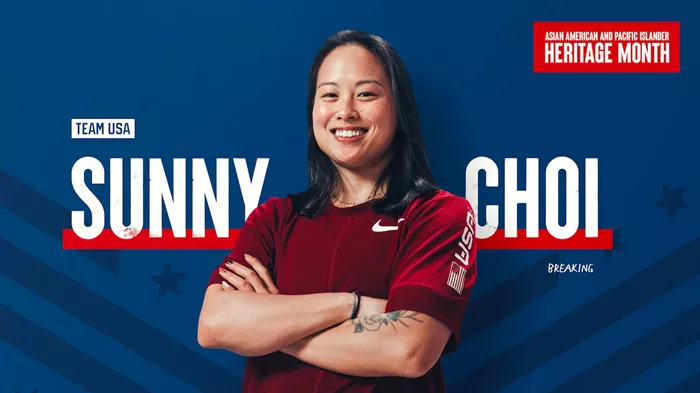As Sunny Choi gears up to become the first female break dancer to represent the United States at the Olympics, her preparation extends far beyond the dance floor. While her daily routine includes intense training with a strength coach, hot yoga, and countless hours perfecting gravity-defying moves, Choi credits her most significant progress to a less visible but equally vital aspect of her regimen: mental health.
Choi, who is making waves in the breaking community, has long harbored Olympic dreams. However, her path to this moment has been anything but conventional. Born Grace Sun Choi in Cookeville, Tennessee, she initially pursued a career in gymnastics. An injury during her teenage years, coupled with a battle with depression, altered her trajectory. Despite her dedication and success in gymnastics, the intense pressures and a lack of support for mental health left Choi struggling.
“My family didn’t talk about mental health,” Choi explains. “Seeking therapy wasn’t an option in our household. It was considered taboo.” This lack of support followed her into adulthood, where the pressures of high-stakes corporate jobs only compounded her struggles.
It wasn’t until she attended the University of Pennsylvania that Choi discovered breaking. This dance form, born from the vibrant street culture of New York City, offered her an outlet for self-expression. However, even as she thrived in this new arena, her mental health issues persisted, exacerbated by the demands of a corporate career.
The announcement in December 2020 that breaking would be included in the 2024 Paris Olympics presented Choi with a pivotal choice. She could continue in a high-pressure job she found unfulfilling or pursue her passion for dancing full-time. The decision was made easier by the pandemic, which sparked a broader conversation about mental health. Choi chose to focus on breaking and prioritize her mental well-being.
“I knew that to truly excel, I had to address my mental health,” she says. “I’ve been able to work through my issues rather than just suppressing them.”
With the support of the U.S. Olympic and Paralympic Committee, Choi began seeing a therapist who specializes in both sports psychology and mental health. This therapy has become a cornerstone of her preparation, complementing her physical training. The sessions have taught her to incorporate “micro-breaks” into her day and encouraged her to embrace her emotions, something she previously struggled to do.
“The therapy has been transformative,” Choi notes. “I’ve learned to be more in touch with my feelings and to allow myself to be vulnerable. This new emotional depth is something I bring to my dancing.”
Choi’s journey mirrors a broader shift within the athletic world, where mental health is increasingly acknowledged as a crucial element of performance. Notable athletes like Naomi Osaka and Simone Biles have also highlighted the importance of mental well-being, sparking greater awareness and openness.
Choi’s emphasis on mental health is not just about personal growth but also about redefining what it means to be an elite athlete. By addressing her mental health challenges head-on, she hopes to inspire others in the breaking community and beyond to prioritize their well-being.
As she continues her preparation for the Paris Games, Choi’s dual focus on physical and mental training exemplifies a holistic approach to sports that could set new standards for future athletes. Her story is a powerful reminder that success in the spotlight is not solely about physical prowess but also about the strength and resilience of the mind.
Related Articles:
Best Anti-Stress Supplements: A Comprehensive Guide
4 Effective Strategies for Relief and Manage Anxiety
Finding the Best Antidepressant to Avoid Weight Gain


